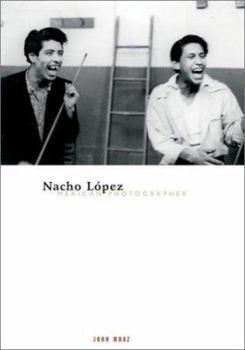Nacho Lopez, Mexican Photographer: Volume 14
(Part of the Visible Evidence Series)
Reveals the career of an influential but under-appreciated photojournalist
Photographer Nacho L pez was Mexico's Eugene Smith, fusing social commitment with searing imagery to dramatize the plight of the helpless, the poor, and the marginalized in the pages of glossy illustrated magazines. Even today, L pez's photographs forcefully belie the picturesque exoticism that is invariably presented as the essence of Mexico.
In Nacho L pez, Mexican Photographer, John Mraz offers the first full-length study in English of this influential photojournalist and provides a close visual analysis of more than fifty of L pez's most important photographs. Mraz first sets L pez's work in the historical and cultural context of the authoritarian presidentialism that characterized Mexican politics in the 1950s, the cult of wealth and celebrity promoted by Mexico's professional photographers, and the government's attempts to modernize and industrialize Mexico at almost any cost. Mraz skillfully explores the implications of L pez's imagery in this setting: the extent to which his photographs might constitute further victimization of his downtrodden subjects, the relationship between them and the middle-class readers of the magazines for which L pez worked, and the success with which his photographs challenged Mexico's economic and political structures. Mraz contrasts the photos L pez took with those that were selected by his editors for publication. He also compares L pez's images with his theories about documentary photography, and considers L pez's photographs alongside the work of Robert Capa, Dorothea Lange, Henri Cartier-Bresson, and Sebasti o Salgado. L pez's imagery is further analyzed in relation to the Mexican Golden Age cinema inspired by Sergei Eisenstein, the pioneering digital imagery of Pedro Meyer, and the work of Manuel lvarez Bravo, who Mraz provocatively argues was the first Mexican photographer to take an anti-picturesque stance. The definitive English-language assessment of Nacho L pez's career, this volume also explores such broader topics as the nature of the photographic essay and the role of the media in effecting social change.Format:Paperback
Language:English
ISBN:0816640483
ISBN13:9780816640485
Release Date:February 2003
Publisher:University of Minnesota Press
Length:272 Pages
Weight:1.10 lbs.
Dimensions:0.6" x 7.0" x 10.1"
Customer Reviews
0 rating





